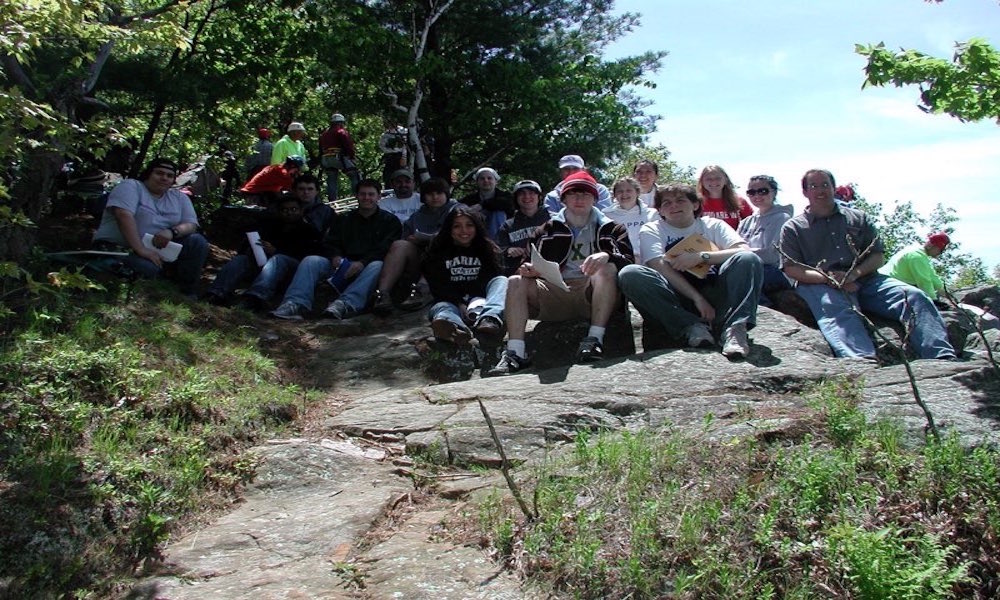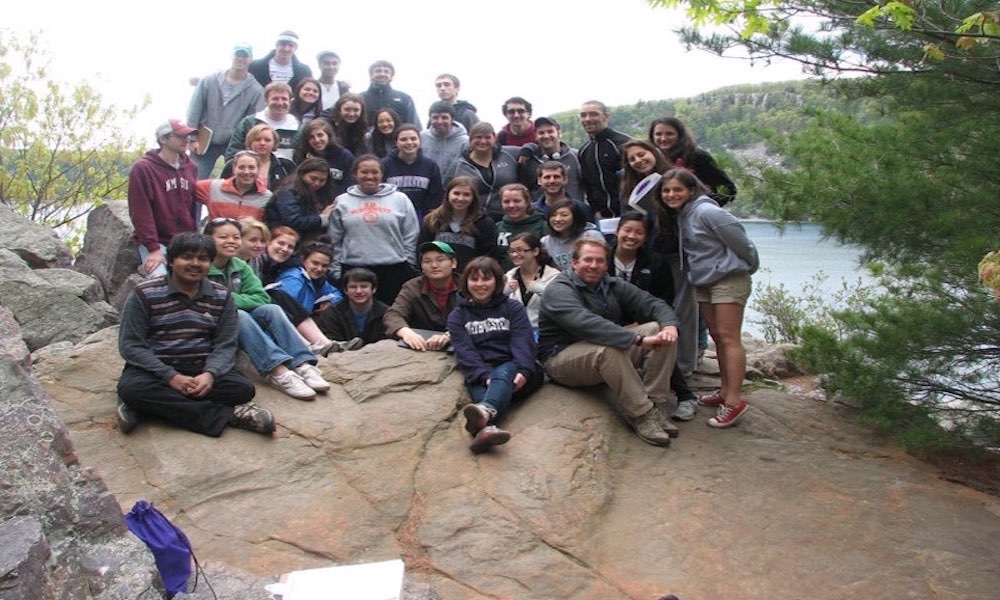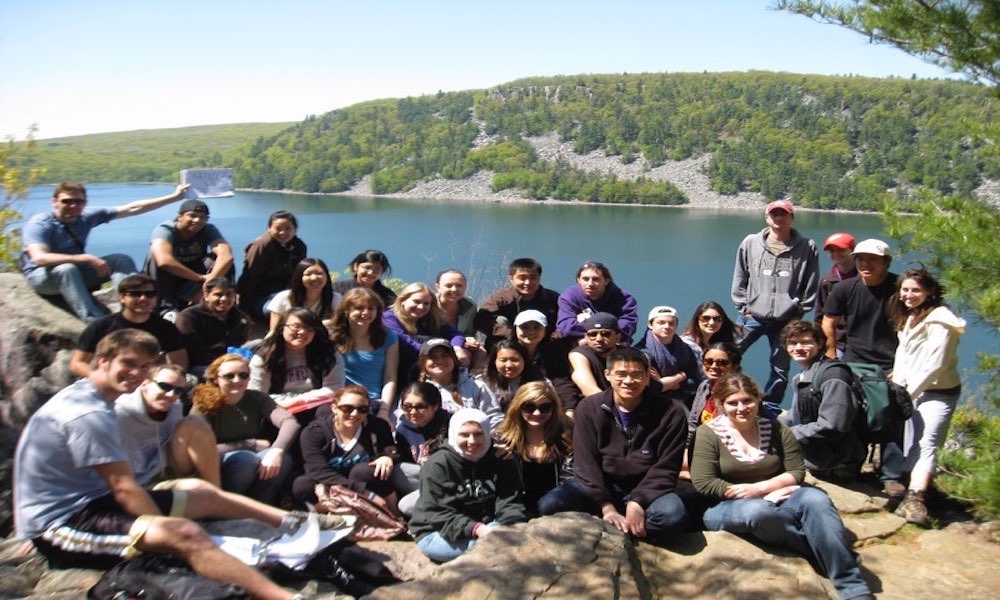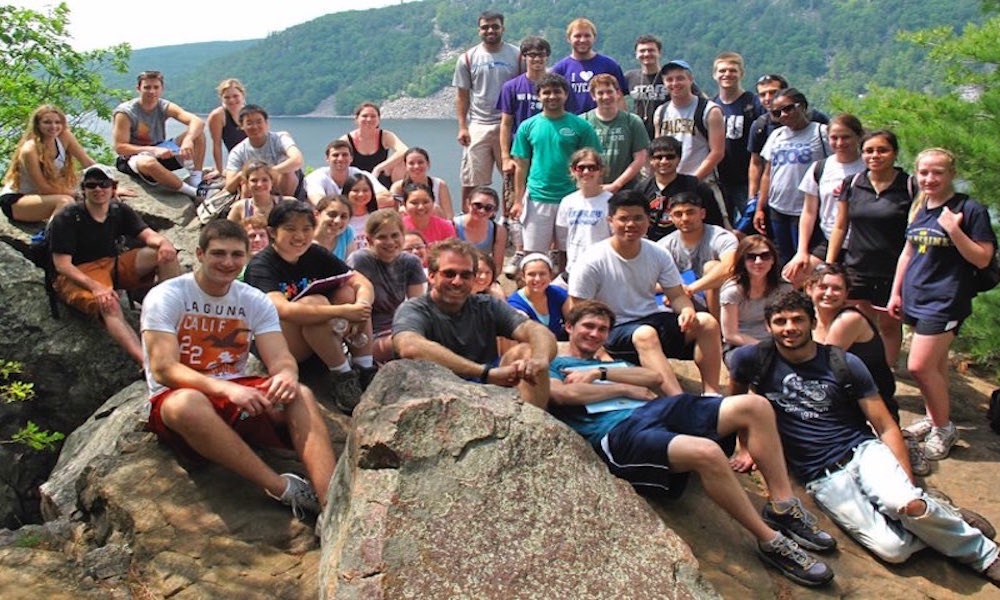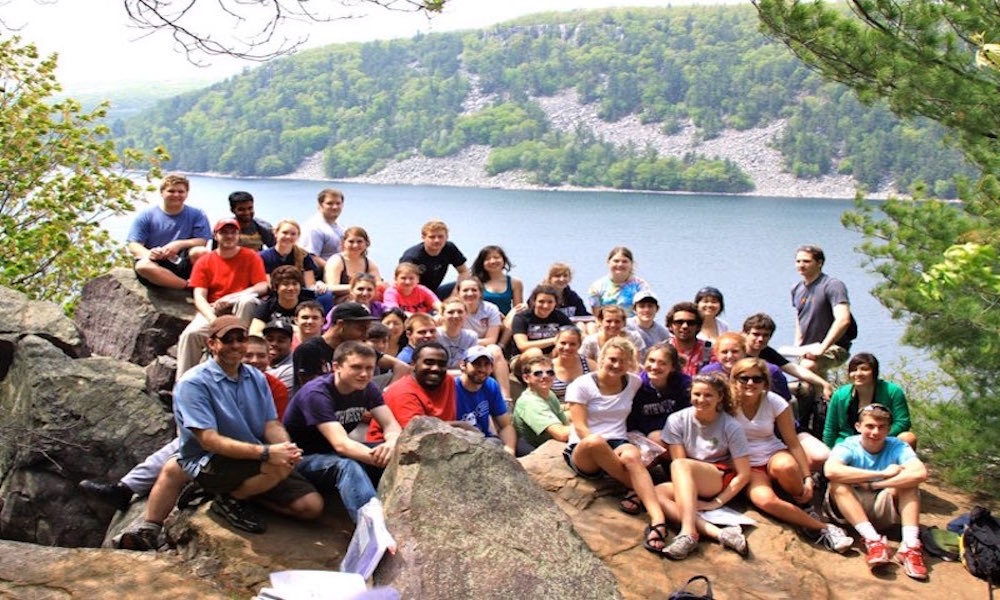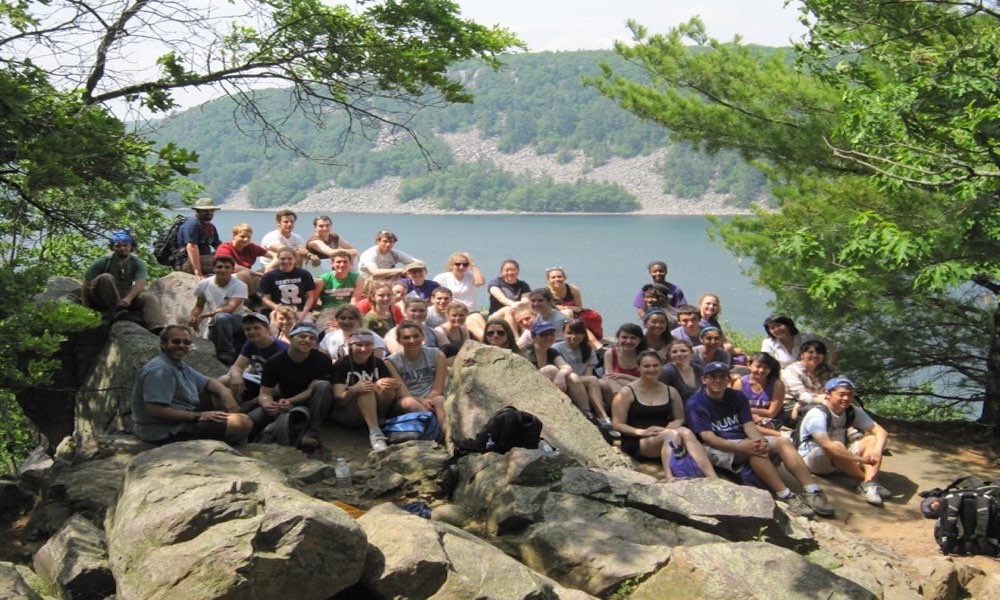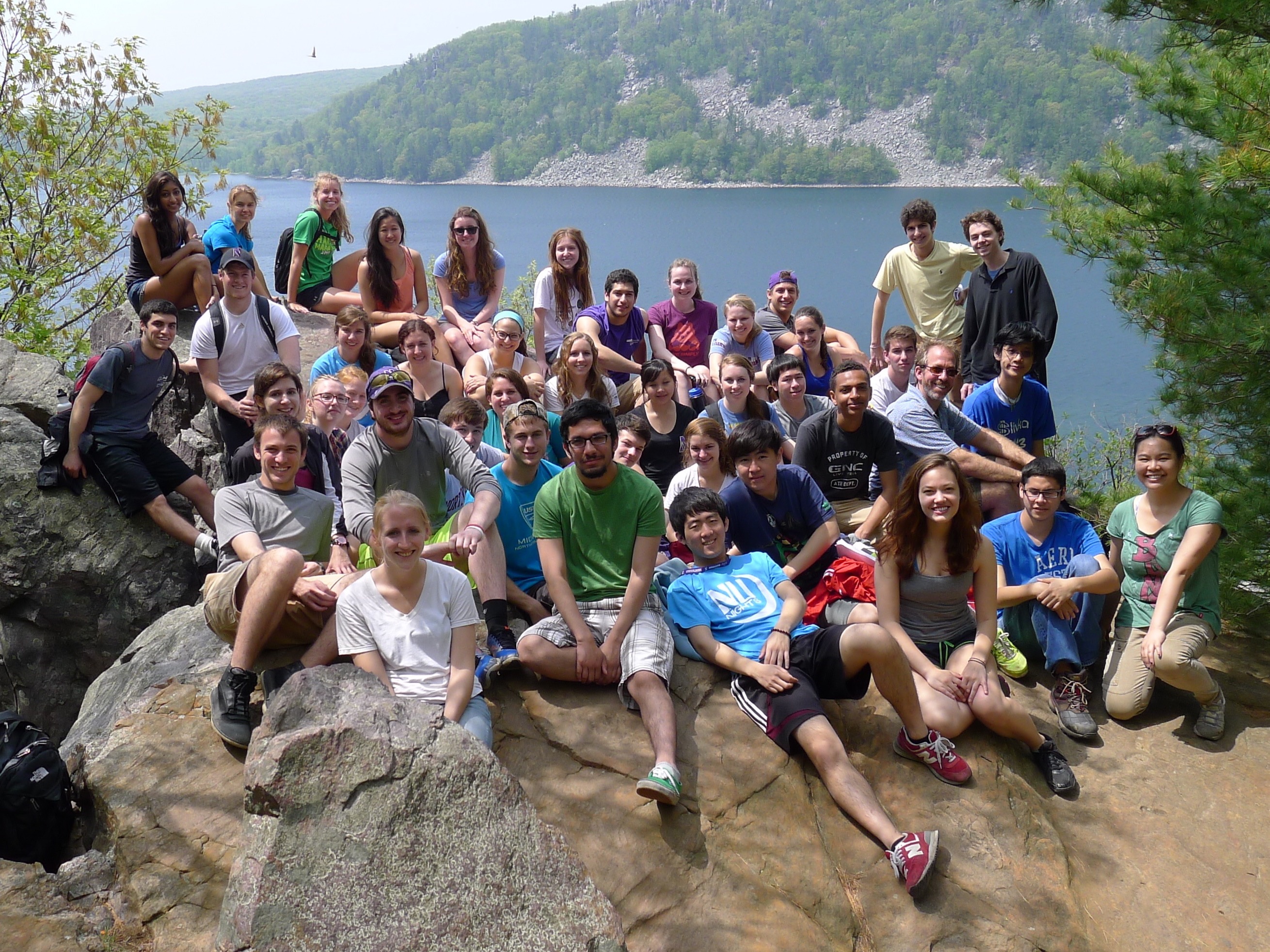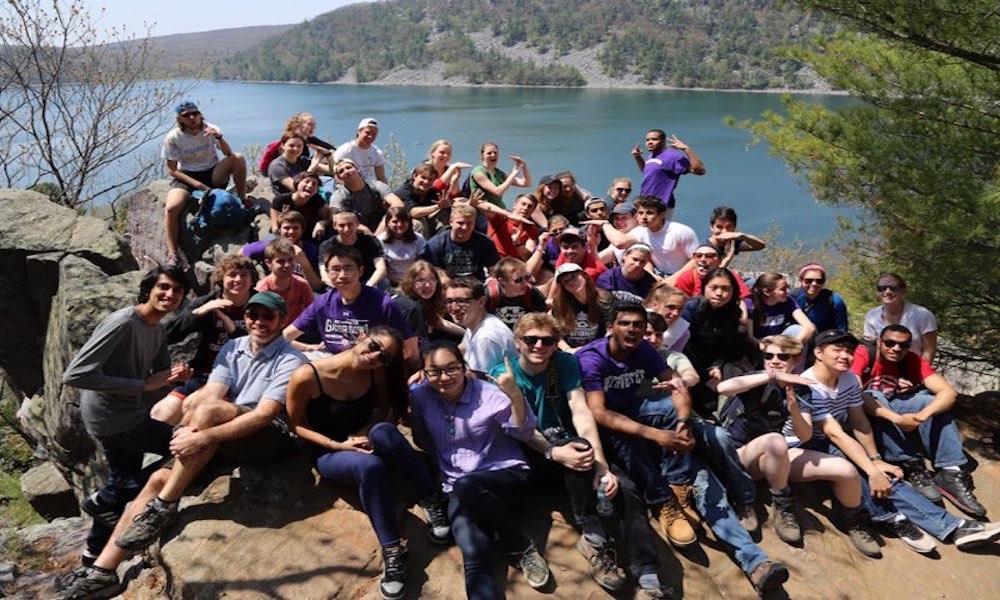
Courses
EARTH 201 Earth Systems Revealed (Introductory Physical Geology)
EARTH 201 combines aspects of physical and historical geology. Physical geology examines Earth materials (rocks and minerals) and the processes that create, modify, and destroy them. Historical geology examines the origin of Earth and its development through time. Lectures discuss basic concepts in physics, chemistry, and biology important for understanding the Earth as a system comprising numerous interacting parts (Earth System Science). Students can expect to learn “how the Earth works” while simultaneously developing basic skills for interpreting and reconstructing geologic history in the field. The course culminates with a required weekend field trip to Baraboo, Wisconsin. Required laboratory sections (2 hr per week) consist of exercises designed to prepare students for the field trip.
Baraboo Field Trip Photos 2005-2018
EARTH 310 Aqueous Geochemistry
Principles of aqueous geochemistry applied to geologic and environmental problems. Topics include thermodynamics and equilibrium chemistry, reaction kinetics, acids and bases, pH and alkalinity, carbonate equilibria, sorption processes and surface reactions, redox chemistry, chemical weathering, stable and radiogenic isotopes, etc. Emphasis is placed on understanding aqueous geochemical phenomena in a numerical modeling context. Lectures present quantitative chemical and mathematical theory illustrated by examples and readings. Assignments include take-home problem sets, student-led presentations, and a final paper.
EARTH 313 Radiogenic Isotope Geochemistry
EARTH 313 examines the application of radiogenic isotope systems to problems in geochemistry, petrology, oceanography, hydrology, ecology, and environmental science. The scope includes nucleosynthesis, cosmochemistry, radioactive decay, geochronology, mixing processes, and numerical modeling. Lectures mostly focus on theory. Take-home problem sets and student-led presentations illustrate applications.

